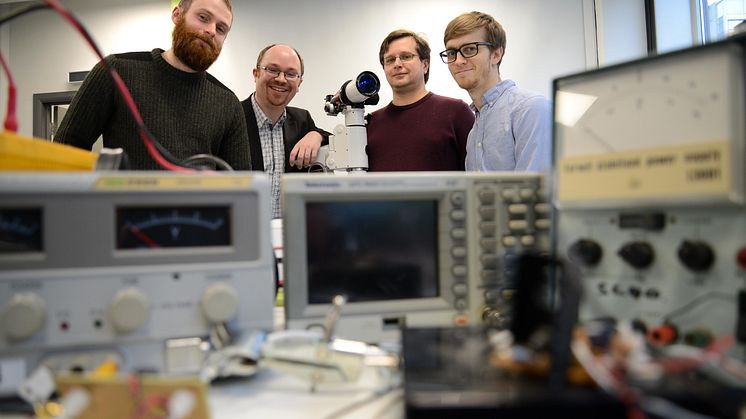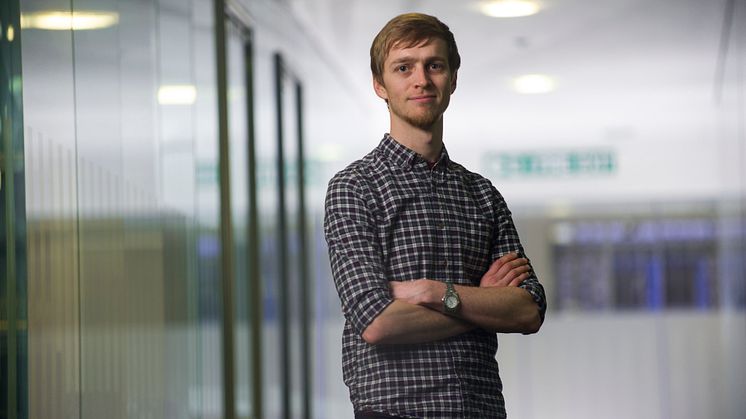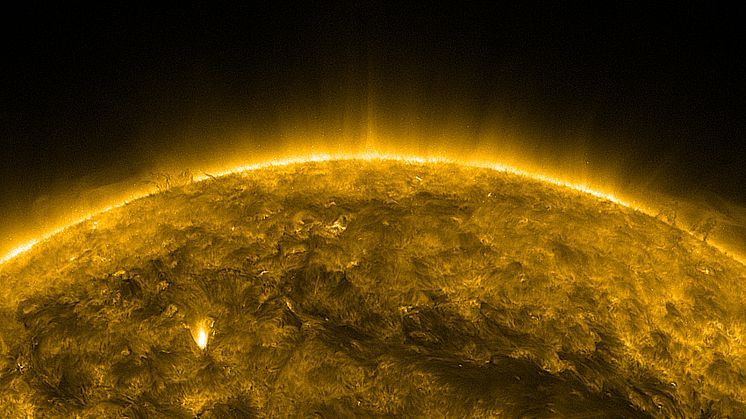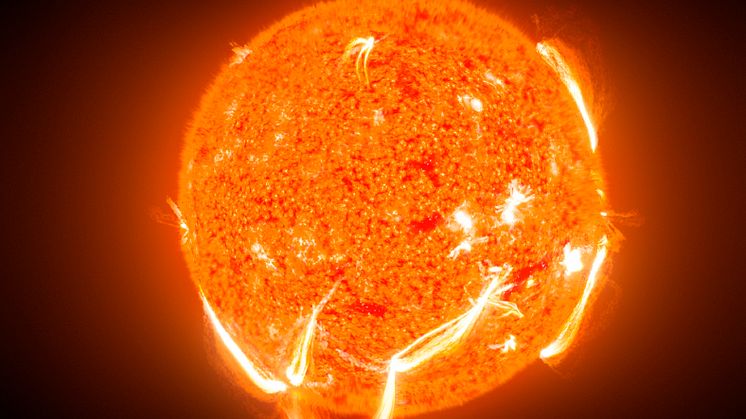
Press release -
Student project set to shed light on the Sun
Our understanding of the Sun and its impact on the Earth could soon become clearer thanks to a unique science project involving a Northumbria University student.
 Physics with Astrophysics undergraduate Richard Cook was invited by a team from the University of Sheffield to lead the scientific part of the experiment, which aims to gather data about the Sun’s atmosphere using a solar telescope attached to high altitude balloon.
Physics with Astrophysics undergraduate Richard Cook was invited by a team from the University of Sheffield to lead the scientific part of the experiment, which aims to gather data about the Sun’s atmosphere using a solar telescope attached to high altitude balloon.
The project has now been selected by the European Space Agency (ESA) for its prestigious REXUS/BEXUS competition, in which students’ experiments are launched into space on board research rockets and balloons.
Richard was specifically chosen by the SunbYte (Sheffield University Nova Balloon Lifted Solar Telescope) team due to his knowledge of solar physics, and he played a key role in the project’s successful selection.
Richard said: “Getting a space on board one of the balloons is very competitive and we had to travel to the Netherlands to present our case to the agency and explain why our experiment deserved to be chosen.
“My role was to communicate the scientific importance of SunbYte to the ESA panel and explain what kind of data the project could provide us with and what that could be used for.
“Our aim is to collect images that can be used to explore the Sun’s atmosphere, in particular two layers called the chromosphere and the corona, which are many times hotter than the Sun’s surface and produce solar flares which can affect the Earth by causing power surges or damaging satellites.”
It is hoped SunbYte will provide a low-cost alternative to Earth-based telescopes, which are very expensive due to the equipment required to capture good quality images of the Sun through the Earth’s turbulent atmosphere.
The SunbYte telescope has been designed using 3D printing techniques and a PiKon optical telescope, based on a Raspberry Pi computer system – a low cost computer which can be programmed by the user. The telescope will be lifted 30-40km above the Earth by the balloon, resulting in clear, high-quality images of the Sun being recorded.
 Richard added: “The positioning of the SunbYte telescope will be unique. Currently we have space telescopes on board satellites, which produce great images but are obviously very hard to reach, or Earth-based telescopes which are easier to reach but further from the Sun.
Richard added: “The positioning of the SunbYte telescope will be unique. Currently we have space telescopes on board satellites, which produce great images but are obviously very hard to reach, or Earth-based telescopes which are easier to reach but further from the Sun.
“Both of these are also very expensive, whereas our design is much more affordable to produce and can be lifted above the Earth’s atmosphere, closer to the Sun, resulting in clearer images at a fraction of the cost.
“This could revolutionise how data is collected in future and hopefully lead to some exciting discoveries about the Sun which we can use to protect ourselves here on Earth.”
The SunbYte team is made up of 13 students from a variety of backgrounds including engineering, mathematics, science and electronics. The team is supported by academic advisors, including Dr Eamon Scullion, Dr Sergiy Shelyag, Dr Richard Morton and Dr James McLaughlin from Northumbria, who are all part of the university’s Solar Physics research group and Extreme Environments Multidisciplinary Research Theme group.
Dr McLaughlin said: “This is an incredibly exciting project to be part of and I am delighted that Richard is leading the scientific part of experiment. Solar physics is an important area of research for us here at Northumbria and it is fantastic to be able to contribute our knowledge and skills to something which could change our understanding of the Sun and its effect on the Earth.”
The information collected during the flight will be shared with members of the scientific community and used by Richard during his MPhys Masters qualification, which he is due to start later this year.
It is hoped that the data will allow scientists to study features such as the origins of the solar wind and coronal mass ejections – giant clouds of hot ionised gas expelled by the Sun into space – and in turn help protect the Earth against potentially dangerous space weather.
The REXUS/BEXUS programme allows students from universities across Europe to carry out scientific and technological experiments on research rockets and balloons. Each year, two rockets and two balloons are launched, carrying up to 20 experiments designed and built by student teams.
The programme is supported by the German Aerospace Centre and the Swedish National Space Board, with the rockets and balloons due to launch from Sweden in October this year.
SunbYte is the only UK project to be selected for this year’s REXUS/BEXUS programme. For more information about SunbYte visit http://www.sunbyte.group.shef.ac.uk/index.html
Extreme Environments is one of Northumbria’s eight Multidisciplinary Research Themes. Researchers in this area are exploring conditions that challenge the existence of most known life forms on the Earth's surface, subsurface and oceans as well as its atmosphere and in the solar systems.
To find out more about Northumbria’s Mathematics, Physics and Electrical Engineering department and the courses available, visit https://www.northumbria.ac.uk/about-us/academic-departments/mathematics-physics-and-electrical-engineering/
Topics
Northumbria is a research-rich, business-focused, professional university with a global reputation for academic excellence. To find out more about our courses go to www.northumbria.ac.uk
If you have a media enquiry please contact our Media and Communications team at media.communications@northumbria.ac.uk or call 0191 227 4571.










